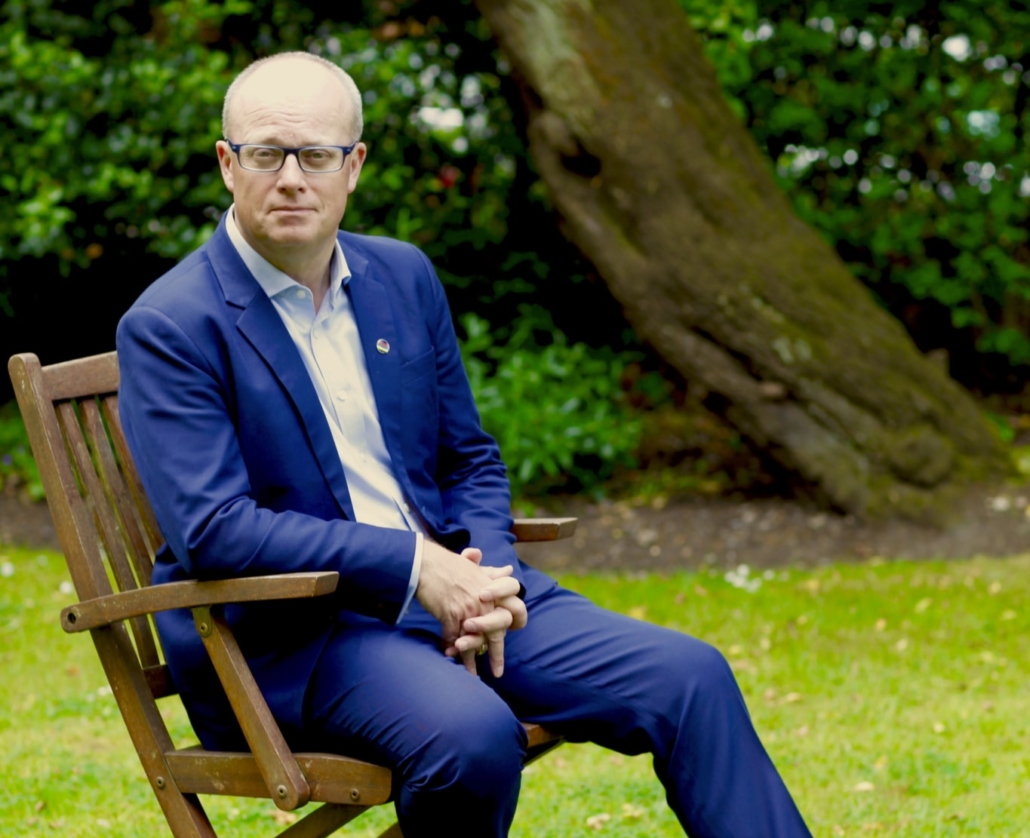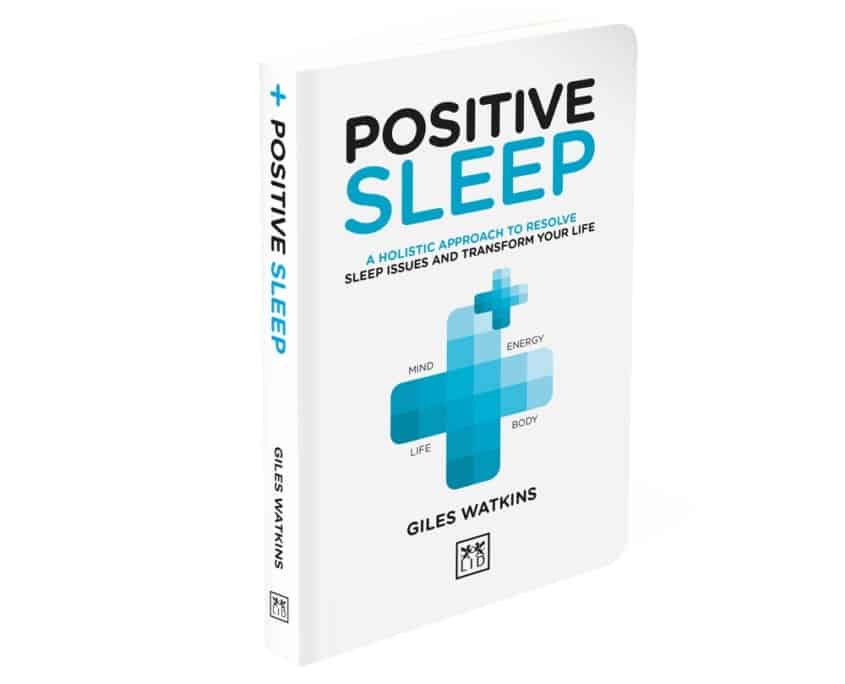Thank you for taking the time to tell us a bit more about yourself. We would love to hear all about your background, your career and how you organise your day-to-day life.

Giles Watkins
How did you change your career from being a Managing Director running companies overseas to becoming a coach in sleeping disorder? How did the idea for your business come about?
I was running the business for Coats PLC in Sri Lanka, and had an appetite to do some more learning & development. So, I ended up studying – part time – for an Executive Masters in Coaching & Consulting for Change at INSEAD’s Singapore Campus. To gain an academic Masters at a top Business School you need to write a thesis, and I did that on my own story about sleep, how I’d struggled with it for over a decade & what I was doing to address this. Once I’d published the thesis, I found there was a lot of interest, so I started doing talks & running workshops – free of charge to start with. And once people started offering me a fee to do this, I thought there might be a business in it!
What was your key driving force to become an entrepreneur?
I had – and still do have – a strong drive to help business leaders & owners avoid the pain that I went through for over a decade.
How do you market your business, and which tactics have been most successful?
Honestly up to now it’s been a combination of word of mouth, sending people copies of my book and publishing some articles on Linked In. I’m now working on my personal branding & website. So it’s been rather reactive up to now. In my marketing I will be very targeted – I’ve developed personas of the type of clients I want & will look to start conversations with them – through others & via Linked-In. I see mine as a niche business – I’m not trying to be everything to everyone.
What is your favourite aspect of being an entrepreneur?
I actually have three strands to my business – management consulting for SMEs, 1-1 executive coaching plus more specialist coaching & consulting around sleep. So, for me the best bits are the variety of customers, choosing who you work with (clients & peers) plus flexibility so I can take time off mid-week to watch my son play sport.
That said I am not sure I am a true entrepreneur, as for me real entrepreneurs are less risk averse than I am. I can withstand some risk, however I’d never bet my house on a business!
How do you define success?
At the individual client level, it’s true customer satisfaction expressed in things like an unsolicited testimonial, a referral or a story of a real, sustainable shift that’s come about through our work together.
At the macro level I’ve said for a couple of years that the day a FTSE-250 CEO tells the quarterly analysts’ meeting that the reason for the company beating target is that everyone is following his/her lead and sleeping better is the day I’ll know I’ve succeeded! This could take decades. However, I’m convinced it will happen.
What has been your most satisfying moment in business?
In my sleep business it’s definitely been the publication of my book. In my whole career I think re-launching a product in Vietnam for Shell in 1998 was the best. I’d been there since 1995 & we had already launched once which had been a flop. We relaunched in early ’98 with an ambitious 40% growth target & we’d smashed our annual goals by October. The party the night was spectacular!
To what extent is the COVID forcing you to change your business model?
I was in the process of exiting one business and starting another in March last year, plus moving to split my time between Bristol & London anyhow, so I was already changing the business model. What COVID’s allowed me to do is work virtually without feeling guilty about it – the tyranny of geography is over! – and without clients expecting meetings to be ‘in person’. And now everyone is placing so much more emphasis on wellbeing it’s the time to be a sleep coach!
You have written a book “Positive Sleep” in 2019, can you tell us a bit more about it?
It’s deliberately short. Having spent more than 2 years on my thesis on sleep, I left it for 18 months before speaking with a publisher. My editor at LID (Sara) was exceptionally helpful and helped me produce a 150-page work of which I’m very proud.
The book is split into three main parts – my sleep story, some sleep science then hints/tips on how organisations as well as individuals can sleep better.
There seems to be a large demand in wellbeing and awareness programmes? How can you help people who have sleeping disorder?
80% of people can fix their sleep issues by truly sticking to some basic principles such as a consistent bed time plus allowing time to ‘wind down’ before bed & ‘wind up’ in the morning. I call this ‘bookending your night’. In addition, I typically offer a menu of tips including how and when to nap, what to do about caffeine & what to do if you cannot sleep at 3am.
The other 20% may have more complex needs to address. In this case sometimes I can help and sometimes I cannot, and they need more specialist medical or therapeutic support.
How do you share your life between 2 cities London/Bristol?
These days I spend the majority of my time in Bristol as that’s where most of my business activities are and my son’s at school. When COVID restrictions allow me to be in London, I typically like to see friends, work with the charity I chair, or play/watch cricket.
What do you like the most in each of these cities?
Although I’ve lived overseas a lot I feel very at home in both cities. I live in similar places in both – Primrose Hill in London & Clifton in Bristol. Both are essentially villages close to plenty of green space and walking distance into town. I really like that mix.
What are your favourite activities at the weekend?
At present this normally involves early morning walking both days, reading as much as possible & cricket practice with my son. As restrictions are eased, I plan to be back playing Real & Lawn Tennis, going to church plus eating with family & friends. And I love a roast Sunday lunch!
How do you see 2021? Do you have any professional or personal plans?
I am optimistic that 2021 will be a year of growth for most people & businesses. I want to continue to grow my management consultancy (www.tinderboxbd.com) in Bristol, Cardiff & Taunton. I will launch my personal website in the summer with a range of packages to address sleep issues. And I’ll be looking after my health & fitness with plenty of exercise. I also plan to explore Wales when I can, truly the land of my father’s (I’m a quarter Welsh).
And finally, what did the French Touch services bring you?
I would describe myself as a ‘friend of French Touch’ as well as a client (because you have rented my London flat out for me in the past). Since getting to know the team in 2014/5 I can honestly say that you are professional & friendly, and you consistently underpromise & overdeliver. What more can I ask?!

Positive Sleep: A Holistic Approach to Resolve Sleep Issues and Transform Your Life’ by Giles Watkins is published by LID (£9.99). Available through all good bookshops plus via Amazon.
